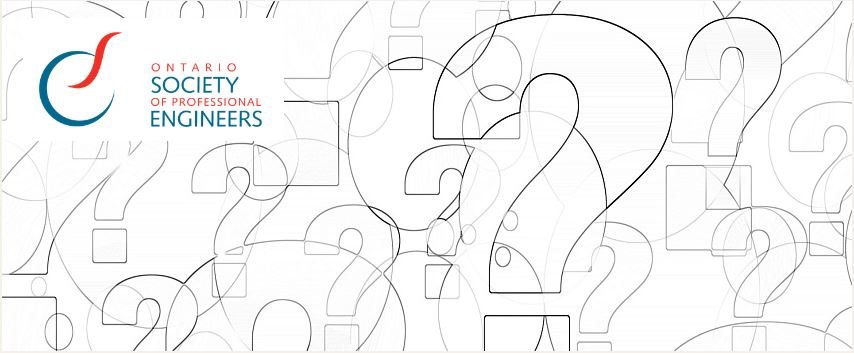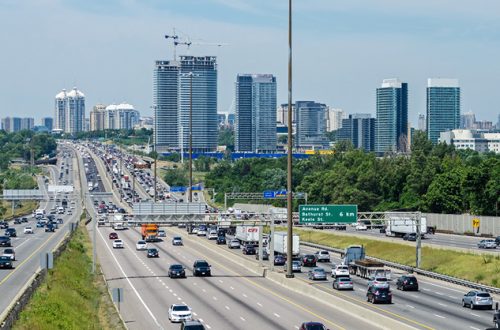The candidates who are elected to OSPE’s Board of Directors during the 2019 Board election are committed to ensuring that your profession is headed in the right direction—a direction where your work is valued, and your voice heard.
All Professional, Associate, Intern and Honourary members in good standing can now vote in OSPE’s 2019 Board election.
Important information about the voting procedure:
- The election runs from March 18, 2019 to April 15, 2019
- Voting will be conducted electronically/online ONLY.
- You may vote for up to four candidates (all candidates serve a 3-year term).
Meet the candidates running in OSPE’s 2018 board election:
—
To help inform your vote, each of this year’s seven candidates are currently being featured on the OSPE website and blog.
The Society encourages all members to read each candidate’s statement to learn more about their professional backgrounds and aspirations for elevating the profile and reputation of your profession across Ontario.
Access the 2019 candidate profiles.
—
*Ask your candidates ALL election-related questions HERE.*
—
If you have questions for any of the candidates who are running in this year’s election, submit your questions in the comments section below THIS POST. Any responses to your questions will be posted in this thread.
Remember to vote in this important election. Seize the opportunity to help maintain a vibrant and progressive OSPE Board.
For more information visit the OSPE website.






Comments (9)
What is your position on the status of Limited Engineering Licence professionals? As one myself I feel we are treated as second-class citizens (more so in PEO than OSPE) with no really good reason. Would your support efforts across both organizations to provide the same rights and privileges to LELs as to PEO, especially since LELs are governed by the same requirements imposed on PEngs?
Hi Franco,
This topic may be a very sensitive one due to the individuality related to it, and usually personal feelings dominates our opinion about it. So I will try to analyze it logically and professionally as possible.
First , I have to emphasize that there is no First or Second class Citizens when is related to practice Engineering . In my opinion, You , as an “LEL ” , have the same duties , responsibilities and any associated privileges that a P.Eng. have related to your Engineering area of Expertise that your License specifies, and no one can question your rights or demote it.
In a self regulated profession , as Engineering in Ontario, there is always rules , regulations and Acts that are agreed upon by the members ( through their elected Council ) and the applicable Laws for Licencing practicing Engineers. These are related simply to the acceptable levels of Engineering Education / Qualification, as well as Experience. If The Candidate , for any clear and justified reason do not meet those set thresholds , then they cannot be Licensed.
My understanding is that ” LEL”s initially do not meet one or more of these requirements, but due to their ” Exceptional ” Capabilities or experience in specific area of Engineering, they are granted this ” Limited ” License , which I consider as an exceptional recognition of the Candidate’s individual achievement(s).
Now , debating if the set thresholds are reasonable , justified or not this can always be raised to the PEO council , by the members individually , or via OSPE as an Advocator for the Practicing Engineers in Ontario , However we should be all careful not to lower the threshold too far to the level that the License becomes meaningless , and we become self serving rather than serving and protecting or Society.
I believe that your Knowledge , Capabilities and real experience is always the true indication of your value in the Society and will always position you where you should be.
Thanks for raising the issue, and hope we can resolve it together.
Tom Murad
Thanks Franco for your question. As you know PEO under Regulation 941 of the Professional Engineers Act, regulate and govern Limited Engineering Licence (LEL) granting. The OSPE in general does not get into regulating it. My understanding is that in 2015 PEO made number of changes to LEL in order to accommodate applicants with technical degrees/diplomas in a broader range of disciplines than those to which the licence historically applied. Very recently I had opportunity to work with colleague that has LEL and is fully qualified to practise professional engineering within a defined scope of practice. It also include signing and stamping, which is the important role and recognition (responsibility) of LEL in the profession.
Franco, perhaps I am reading too deeply into your question but I see two aspects to this issue. One, the regulatory aspects, the other candidates have addressed and is largely within the domain of PEO. Second, the social / cultural perception, is one that I believe OSPE can advocate for. LELs (and more broadly, technicians, technologists, and technical experts with other postsecondary degrees) ought to be highlighted as complementary or in many cases equivalent to the roles often served by professional engineers. Technicians and technologists bring valuable practical skills and familiarity with standard tools and processes that are necessary for any successful project. Technical experts with advanced degrees and significant experience also bring unique perspectives to specialized areas of the profession. Some of the most effective engineers I know have also taken courses or completed certificates in machining, practical electronics, or mini-degrees in other technical specialties to supplement their traditional engineering skills. In the same way that OSPE tells the personal stories and highlights the contributions of “engineers”, this can be extended to LELs. I would be pleased to work with you and other LELs on broadening OSPE’s advocacy efforts in government, public relations, and media to better include and represent LELs.
Do you support the expansion, into different work areas, where an engineering licence is required in order to safeguard the public interest. For example into Land Use Compatibility assessments and Environmental Assessments?
Thanks Franco for you second question. Definitely I support that PEO consider the expansion for engineering licence requirements where it comes to application of engineering principles and concerns the safeguarding of life, health, property, economic interests, the public welfare or the environment, or the managing of any such act. My work involves working on Municipal Class Environmental Assessment projects together with Environmental Planners/Scientist and in all great work we are doing for environmental protection and public safety, concerned with the same end goal of answering questions or providing solutions to problems related to the environment, I see opportunity for PEO to look into academic requirements, as well as review their practices to make sure it is consistent with engineers’ ethical obligations, and responsibility to maintain high professional standards.
Franco, I support the expansion of P. Eng/LEL requirements into Land Use Compatibility, Environmental Assessments, and more broadly public planning and policy roles that traditionally lack engineering presence despite the immense need for technical, regulatory, and ethical excellence. Moreover, I see many existing professional and government bodies (e.g. Transport Canada DADs/DARs) who have their own equally or even more stringent process for licensing members. These bodies have lately come under fire for conducting engineering work without actual engineering licenses. In these cases PEO and these other entities should evaluate and where appropriate establish bilateral agreements to expedite or condense the process needed for P. Eng/LEL licensure.
Hi Franco,
Thank you for your two questions.
Regarding the Limited Engineering Licence, I would support efforts to engage our colleagues at PEO to discuss any actual or perceived inequities related to how P.Eng. and LEL members may be treated. In my opinion, it is important for OSPE and PEO to maintain excellent relations and to be able to have direct contact (e.g. pick-up the phone and call each other) on issues affecting Ontario’s engineers. I am not personally aware the specific concerns regarding the treatment of LEL professionals, but I do believe it is important for all engineering professionals to be fully encouraged and supported to practice within the full scope of their qualifications/credentials.
With respect to broadening the scope of services that would be considered “Professional Engineering” (such as Land Use Compatibility Assessments and Environmental Assessments), the Professional Engineers Act defines the “practice of professional engineering” as “any act of planning, designing, composing, evaluating, advising, reporting, directing or supervising that requires the application of engineering principles and concerns the safeguarding of life, health, property, economic interests, the public welfare or the environment, or the managing of any such act”. Assessments on their own might not fall exclusively within the domain of “professional engineering” as there is significant overlap with other scientific fields (e.g. ecology and environmental sciences) – if limited in their scope, assessments wouldn’t necessarily be considered professional engineering. I think it depends on whether or not the assessments are actually providing specific recommendations for safeguarding human health/environment/etc. vs. studying issues and identifying compliance/non-compliance in comparison to existing regulations. The evaluation of assessment reports and issuance of approvals based on them may be considered professional engineering as this would involve making an actual decision/recommendation that could affect human health/environment/property/etc. Some additional research, stakeholder input, and dialogue with PEO/regulators would be needed on my part before taking an informed position on this issue.
Thanks again for the questions – hopefully my responses provide some insight on how I would begin to consider/evaluate these issues.
Best Regards,
Tyler
Thank you, Candidates, for your responses. Your replies are thoughtful and thorough. Should you be elected I would be most honoured to assist you investigate these two issues.
Leave a Comment